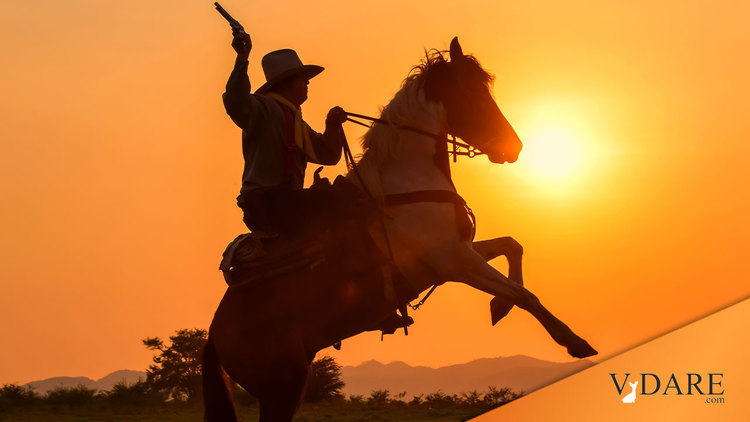
By Joe Guzzardi
02/01/2008
Last year, for the first time in a decade, I missed the West’s premier event, the annual Cowboy Poetry Gathering in Elko, Nevada.
I was hospitalized at the time and also missed Thanksgiving, Christmas and New Year’s Day.
I’m not sure that I can exactly equate not celebrating Christmas with not going to Elko — but it’s close.
At the 24th National Cowboy Poetry Gathering, as in all preceding ones, the people at the Western Folk Life Center contemplate the individuals' role in shaping the West’s future. The Center also takes comfort in our Western bonds with place, family and friends, our work, our animals, and our traditions to provide us with strength, inspiration and grounding.
What’s encouraged at the Gathering is, according to its website, "kinship with all fellow beings, whether two-legged or four-legged, that call this region home; and we encourage better understanding of the language of horse culture and the land that nurtures this way of life."
Among the aspects of cowboy life that will be featured this year is the historical importance of song.
Well-known western recording star, Don Edwards will perform songs from the 100th anniversary of the publication of Jack Thorpe’s "Songs of the Cowboys". Thorpe is remembered for having written the lyrics to "Little Joe the Wrangler", one of the most famous songs in cowboy history.
Like many other figures in western lore, Thorpe was not the person he seemed to be. "Little Joe" was written 1897 while Thorpe was on the trail between Chimney Lake, New Mexico and Higgins, Texas. Thorp’s tale would indicate that he knew that wrangler life style well.
But the opposite is true. Thorp was born in 1867 into a family headed by a well-to-do New York City lawyer and real estate investor. The Thorps also owned a house in an enclave for the wealthiest of the wealthy, Newport, Rhode Island.
Thorp was educated in exclusive prep schools and he attended Harvard for three years. A polo player, Thorp trained his own ponies for matches.
At the age of nineteen, when his father sustained severe financial losses, Thorp moved to New Mexico and worked for a ranch as a cowboy hand. Although Thorp also worked briefly as a civil engineer, he spent most of his next 50 years as a cowboy, and as a collector and writer of cowboy songs.
That Edwards will be playing Thorpe’s songs is fitting because Edwards' background is also non-traditional for a western songsmith.
The son of a vaudeville magician, Edwards was born and raised in the farming community of Boonton, New Jersey. Edwards' first inspiration came from the writings of cowboy author Will James including The Lone Cowboy.
Motivated by James' work to learn more about life on the range, Edwards took up the guitar at age ten and eventually performed songs originally recorded by Gene Autry, Tex Ritter and Jimmy Rodgers.
Edwards ranks among the nation’s leading authorities on western music and lore. He has presented seminars at Yale, Rice, Texas Christian and traveled worldwide to sing his songs.
The two essential Edwards albums are Goin' Back To Texas and Songs of the Trail.
One barometer that I use to gauge Cowboy Poetry Gathering’s importance and its commitment to celebrating the West before it’s gone is the sprawl that has engulfed the Nevada cities that I drive though on the way to Elko.
The small towns along the once deserted Interstate 80 — Reno, Lovelock, Battle Mountain and Winnemucca — are slowly but perceptibly changing.
And a little more than a year ago, Wal-Mart opened in 915,000-square-foot distribution center a few miles east of Reno.
If you have been hankering to go to Elko, you'd better do it soon. When these ranchers and cowboys are gone, they'll be gone for good.
[Note to VDARE.COM readers: You can listen to the Gathering live here.]
Joe Guzzardi, an instructor in English at the Lodi Adult School, has been writing a weekly column since 1988. It currently appears in the Lodi News-Sentinel.
This is a content archive of VDARE.com, which Letitia James forced off of the Internet using lawfare.